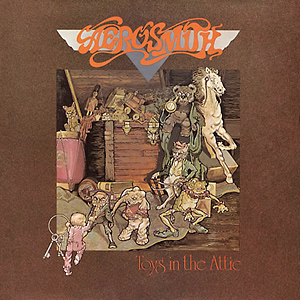Under Review – Monster: The Jeffrey Dahmer Story
Other Opinions
Courtesy of Netflix (Fair Use)
Freshmen Katherine Johnson and Lulu Flores share their thoughts on Monster: The Jeffrey Dahmer Story.
Almost 28 years after serial killer Jeffrey Dahmer’s death, Netflix released Monster: The Jeffrey Dahmer Story. The popular show claimed to portray the infamous serial killer’s story primarily through the perspective of his victims. It became one of the most controversial series of 2022 in just a few weeks.
The controversy surrounding the show stemmed from the way Netflix profited off of the pain the victims and their families experienced by retelling their stories insensitively and without their consent.
Netflix did not receive the victims’ families’ permission before filming and releasing the show, leaving them in the dark while a fragile and tense part of their lives was shown on millions of screens around the world. The trauma those families went through years ago was revisited in detail throughout the series without their input or approval.
While watching the show, the viewer comes across gruesomely detailed scenes depicting Dahmer’s worst crimes.
“I had already heard the things he had done, so I already knew what was going to happen, but it was really uncomfortable to watch,” freshman Finnian Owsley said. “I didn’t understand how somebody could even be like that.”
For some, the level of discomfort felt when watching Monster was lessened by an attractive starring actor, Evan Peters. These slight feelings of attraction may lead to the disregarding of the killer’s actions, regardless of how horrific they may be.
“I feel like we as a society tend to perceive more conventionally attractive people as if they can do no wrong,” sophomore Sofia Aboul-Enein said. “We perceive them with a ‘halo effect’ even. If they do something wrong we seem to think it’s fine, and we kind of brush it off and try to justify it.”
Many people have the tendency to romanticize good-looking individuals who fit into the beauty standard despite their actions. The celebrity treatment of these characters can easily diffuse into media platforms like Tiktok and Twitter, further influencing others.
Peters has starred in fan-favorite shows such as American Horror Story and Wandavision. The attraction–based fan reactions to Peters in previous films and series most likely transferred over to the reactions of Monster, influencing some viewers’ perception of the show.
“I keep seeing really disturbing videos of people saying things like, ‘guys, Dahmer was just misunderstood,’” Owsley said. “They have also been making edits of him saying that he is so attractive and then neglecting all the things he did.”
There was similar controversy surrounding the 2019 drama, Extremely Wicked, Shockingly Evil, and Vile, starring Zac Efron and Lily Collins, which portrayed the story of Ted Bundy and his long-time girlfriend Liz Kloepfer. Similar to Peters, Efron received many positive reactions to his role because on his looks, as he also did in High School Musical.
The underlying theme of sympathy toward serial killers portrayed in the media can also be traced back to a justification of their actions in shows like Monster. The perspective of the show affects the way the character is perceived.
“At some points, it seemed as though they were trying to sympathize with him and make it seem as if they had a different take on the story. It ended up feeling like they were trying to justify his actions by showing his family life and origins,” Aboul-Enein said. “If you want to learn more about Jeffrey Dahmer, this show is probably not the most informative because they dramatize most of it.”
The justification of Dahmer’s actions throughout the show is further worsened by Netflix’s weak claims to portray the case in the viewpoint of the victims. Netflix’s original goal when working on the series was to tell Dahmer’s story from a different viewpoint than other shows, leaning into the victims’ experiences rather than his.
As the show progressed, though, the line between the two perspectives became blurred when they seemed to start empathizing with Dahmer to “have a different take on his story,” as Aboul-Enein said. The show took a turn from showing the true facts of the case to attempting to justify Dahmer’s cruelty because of his traumatic childhood and his lack of parental support from a young age.
Because of the stylistic additions to Dahmer’s story, there is a lack of reliable information in the show. Netflix tried to create further drama and suspense to increase profit and viewership of the series.
If this is your first time learning about the case, look for a more factual documentary series that doesn’t primarily focus on monetizing the story, like Conversations With a Killer: The Jeffrey Dahmer Tapes.
The show also did not properly address the role systemic racism played throughout the Dahmer case nor how it impacted the outcome of his actions. Dahmer committed most of his crimes in the predominantly Black Northside of Milwaukee, and eleven of his victims were young black men.
One of Dahmer’s victims had tried to talk to the police and was ignored, leading to his death after interacting with Dahmer a second time. A woman that lived in a neighboring apartment, Glenda Cleveland, had caught onto what Dahmer was doing and was also blatantly ignored by the police because of the color of her skin.
Netflix chose to tag the show as LGTBQIA+, despite the true crime tag possibly being seen as a better fit. The tag is usually used in more of a positive light to describe shows such as Heartstopper and I Am Not Okay With This. Seeing a show that highlights the story of the brutal murders of queer men being categorized under the LGBTQIA+ tag is shocking and is not correctly representing the content of the show.
It is speculated that the reason the show was tagged with LGBTQIA+ is because Dahmer may have identified as part of the community and primarily targeted men. Shortly after the issue became prevalent on Twitter, Netflix proceeded to take down the tag with no comment.
The stigma surrounding the tagging likely also led to the negative connotations associated with the show.
Dahmer’s actions affected everyone. His seventeen victims, their families and the community surrounding them all experienced a great deal of trauma. Anyone involved in the case should not have had to relive those memories in an insensitive manner that sympathizes with the man who ruined their lives.
“His actions affected the whole community,” Aboul-Enein said. “The show dove deeper on how it affected him personally and his own family rather than the community as a whole. They definitely could have been more sensitive to the people involved.”
There should be no way to excuse his actions or victimize him. He was a murderer who killed, totured and ate his victims. Despite this, Netflix still found ways to romanticize and humanize his actions by changing the show’s perspective and not depicting certain parts of the case correctly.
“It dehumanizes the victims and their families,” Aboul-Enein said. “These are people’s lives that he destroyed. Their death is just another number if you take away the personal aspect.”

Kate Johnson ('26) joined The Review in 2022 as a freshman. Her favorite candy is gummy bears and she wants to live in NYC when she is older.













